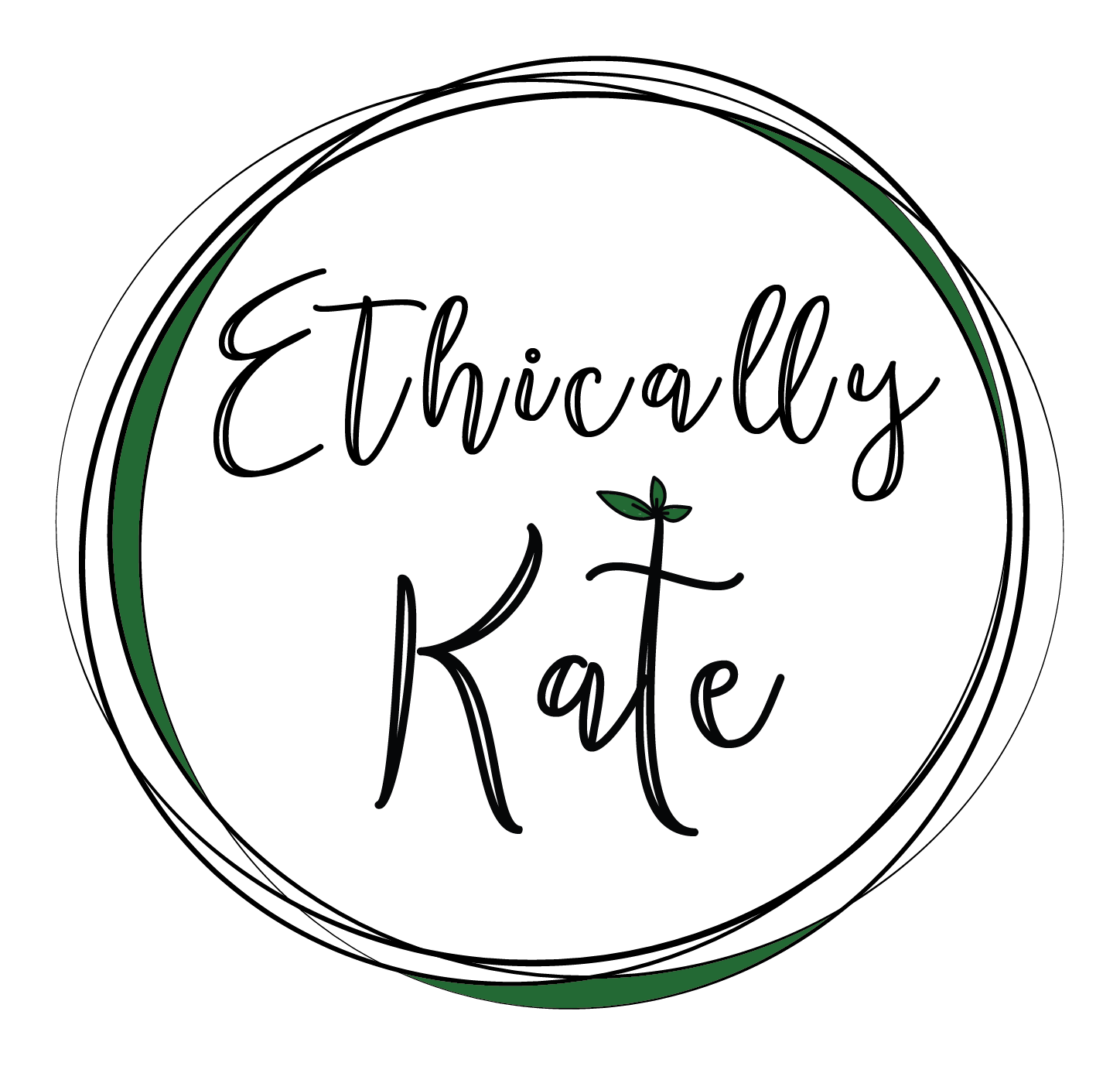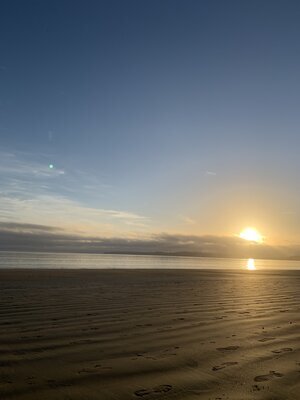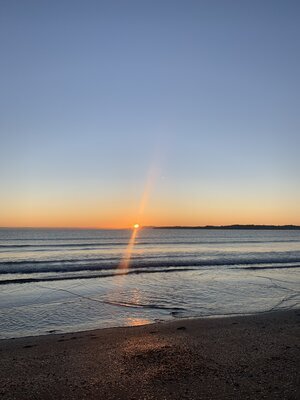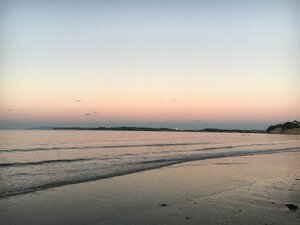How To Look After The Ocean: NZ Sea Week
Three things you should know about me:
Every morning I walk my dog on the beach.
I’ve never lived more than 300m from the ocean.
I swim all year round.
Sea Week seems like every week for me! But this week (8th - 14th March) is officially National Sea Week here in Aotearoa New Zealand.
I kicked off Sea Week early when I attended a Zoom event about marine biodiversity last week, but the real kick off was the incredibly engaging Facebook live event on Monday the 8th of March:
Seaweek 2021, Connecting With Our Seas, Toi Moana ~ Toi Tangata
“Every Kiwi can give back to the oceans through our individual actions.”
This event was led by Te Radar with guests Rob Lewis, Marine Scientist & Co-ordinator of the ‘Shark Spy’ Project, Moana Tamaariki-Pohe, Community Leader & Environmental Enthusiast, and Charlie Thomas, Ocean Conservationist & Volunteer.
I was challenged to think back to my first memories of the sea when Te Radar asked the guests to reflect on theirs. Mine was similar to Charlie’s; walking along the beach collecting shells, stones, bones, and all the other beautiful creations that can be found on ocean shores. This question steered the conversation to the not-so-beautiful items that wash up on our beaches too. Rubbish from urban areas, construction waste, commercial fishing litter, and generally whatever you can imagine, ends up in our oceans whether we intend it to or not.
An image of a decomposed albatross was shown with dozens of pieces of plastic lying in their remains having obviously existed in the bird’s stomach. This image was taken on one of Charlie’s clean up expeditions. Charlie’s love of birds resonated with me, and I was reminded of why I pick up rubbish when I walk the beach in the morning. Ocean plastic and rubbish negatively affects sea birds and all ocean wildlife. The more we can reduce the waste we consume, the less likely ocean inhabitants will be harmed.
Speaking of ocean inhabitants, the event greatly increased my knowledge of sharks! Being the leader of the “Shark Spy Project”, Rob explained the major gaps in shark research and ocean life in general. His project encourages New Zealanders, no matter who or where they are, to record shark life and hand it into his team so they can explain it and record it all in one place. I was mesmerized by the footage Rob shared of sharks, sent in by a school group. The sharks were of varying sizes, which was the reason why Rob showed it to us - sharks usually distribute themselves by size and sex. Seeing sharks of different sizes swimming together is rare! A brilliant example of helpful footage that anyone, anywhere, can work together on.
A few more fun things I learnt:
85% of wildlife in Aotearoa New Zealand exists in the sea
Nurdles (the tiny balls of plastic found on beaches) are often called Mermaid’s Tears
The Mussel Reef Restoration Trust will be rolling out a Mussel Seedling project across the country
Throughout the shark chats and ocean appreciation, it was clear (and not surprising) that our oceans need our help. Desperately. But what was unique about this conversation, and Sea Week in general, was although the discussion didn’t stay ignorant to the hard facts of our decreasing ocean biodiversity and increasing ocean plastics, it didn’t leave viewers in the doom and gloom. All four speakers ended on a positive note that inspired viewers (myself included) to do what they can.
Moana encouraged everyone to start local, get involved in what is already happening locally and take, and take advice from Martin Luther King: “If you can’t do great things, do small things in a great way.”
Charlie emphasised “how easy and how simple and how great can it be to make a difference where you can.”
And Rob made me want to head off and research Mako Sharks!
If you can get involved in Sea Week this week, find all events here.
If you can’t, I encourage you to visit the ocean if that’s possible for you. Sit, walk, run, skip. Observe your surroundings, note your findings (in your mind or on paper), pick up rubbish, talk to a friend or family member about the sea, and start by honouring and understanding the sea we so rely on.
Happy Sea Week!
Image by Nectar Photography
As a rule, I only work with organisations I love and can whole heartedly back. This is a sponsored blog, but 100% my own words, photos, and opinion.






